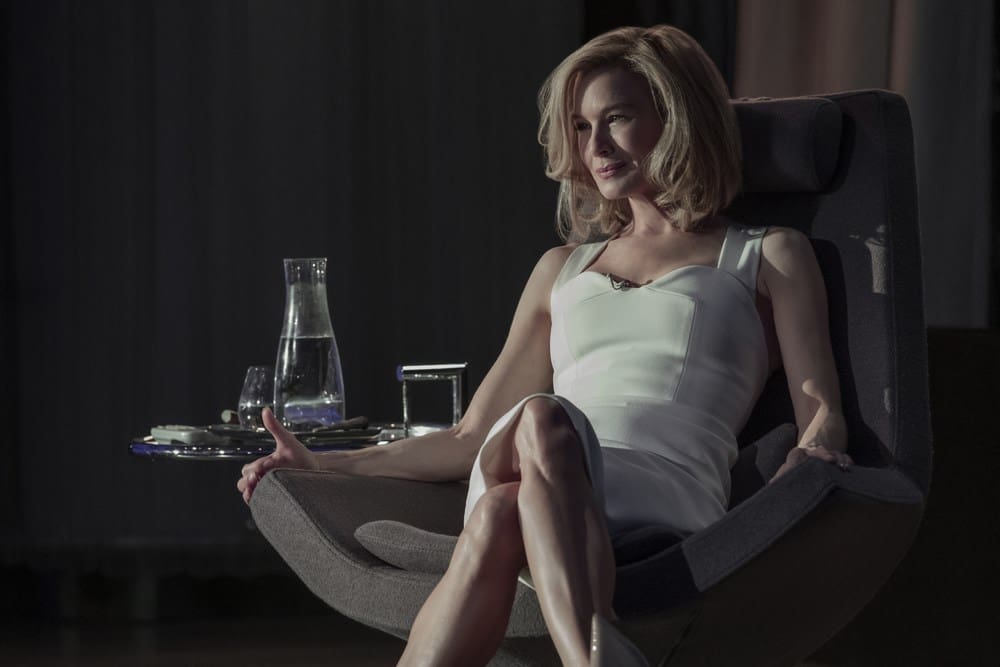
Living through a Golden Age of Television is a good thing. There is an overwhelming amount of great stories being told right now, and the standard of what we can expect from a television series has fundamentally changed. Television used to be viewed as the cheaper alternative to the movies; now, some series are seen as genuine replacements of film. And it’s hard to argue against quality.
But something was lost in this transition. As networks and streaming services raced to find their own versions of Breaking Bad or Mad Men in an effort to find prestige and audiences, some genres of television were lost in the shuffle. Namely, the primetime soap. And as fewer primetime soaps made it to the air, their reputation became tarnished. Suddenly they were seen as cheap and lesser. But these shows were cultural phenomenons for a reason.
It seems, however, that audiences may be in for a major change. What/If, the latest Netflix original series, marks a welcome return to the primetime soap. Even better: it’s a show that seems remarkably aware of what made primetime soaps so much fun in the first place, and knows how to translate their storylines into the realm of streaming. Even if the powers that be have ignore primetime soaps for the last few years, in the age of binge watching, What/If feels right at home.
In the first season of what will apparently be an anthology series, What/If follows Lisa Donovan (Jane Levy), a young woman trying to get the tech start-up she’s running funded in Silicon Valley. An optimistic dreamer hoping to reform the medical industry with her company, Lisa’s hopes are continuously dashed and she’s dangerously close to running out of funds. But an unusual opportunity presents itself in the form of Anne Montgomery (Renée Zellweger), a notorious investor known for taking what she wants and ripping apart whatever or whoever gets in her way. Anne wants to fund Lisa’s company – but only if she can spend the night with Lisa’s husband, Sean (an oft-shirtless Blake Jenner). The couple quickly agrees to the terms – they really need the money – but the decision creates a domino effect that throws them into a larger conspiracy.
On the surface, What/If almost feels like an exploration of infidelity, especially since all the subplots involve cheating in some way. In one corner we have Lisa’s brother, Marcos (Juan Castano) and his boyfriend Lionel (John Clarence Stewart), who decide to invite a third man into their relationship, which changes their dynamic and forces them to address how they feel about love in general. And there’s also Lisa’s best friend Angela (Samantha Marie Ware), who is married to her high school sweetheart (Keith Powers) but is having a passionate affair with her boss. But make no mistake: this is a surface level examination of infidelity. And that’s a good thing.
What/If has a fundamental understanding of what made television a communal event long before the advent of Netflix and Hulu. This is unapologetic melodrama that’s consistently dialed to the highest level at all times. By the end of the pilot, audiences are quickly made aware that Sean’s night with Anne was not what it seems, and that Anne has a mysterious secret plan. Every character is hiding something, whether it be a mysterious past or a duplicitous motivation. And while the series may lack the Hollywood-quality cinematography and editing that TV audiences are starting to become used to, it moves at such a breakneck pace that it’s impossible to get bored. This is the sort of show that’s made for water cooler discussion, but is best enjoyed with great friends and a lot of wine.
But what separates What/If from its ancestors on network television is the creative freedoms that Netflix affords. Namely: sex. It may sound silly or immature to praise a show for being explicit, but that’s the point of this series and all parties involved make no qualms about it. The show works as an erotic thriller of sorts, with sex scenes that are equal parts titillating as they are silly.
It also gleefully caters to the sensibilities of audiences that made primetime soaps big in the first place: women and queer men. The men on the series are objectified with a sly wink that shows the actors are clearly in on the subversion. Women, on the other hand, are given the chance to drive the action, and launch into multiple monologues per episode. It’s refreshing to see a show that knows its audience so well, when so many other shows treat straight white men as their default audience (looking at you, Game of Thrones).
This isn’t just a comeback for the primetime soap, however. This is a welcome return for Renée Zellweger, a terrific actress who has unfortunately been forgotten by Hollywood and mistreated by the press. This is, by no means, career best work for Zellweger, and she knows it. Her character is one-dimensional, and she presides over the narrative like an omnipresent force as opposed to being the main character. But that is in no way an insult to the series. Instead, this marks a fun new chapter in her career, reminiscent of what Viola Davis is doing on How to Get Away with Murder. It’s a reminder that Zellweger is a genuine talent with screen presence. Hopefully, casting directors are watching.
Earlier this year, Netflix picked up You from Lifetime and turned it into a phenomenon. And while You uses its melodramatic trappings to explore themes of misogyny, it marked a fun return of the soap opera that managed to interest the masses. What/If, while not exactly thought provoking, seems to indicate that Netflix is interested in giving their audience melodramas to binge with friends. And I hope they do, because I don’t think any medium is truly at its peak if we don’t make room for popcorn entertainment.

